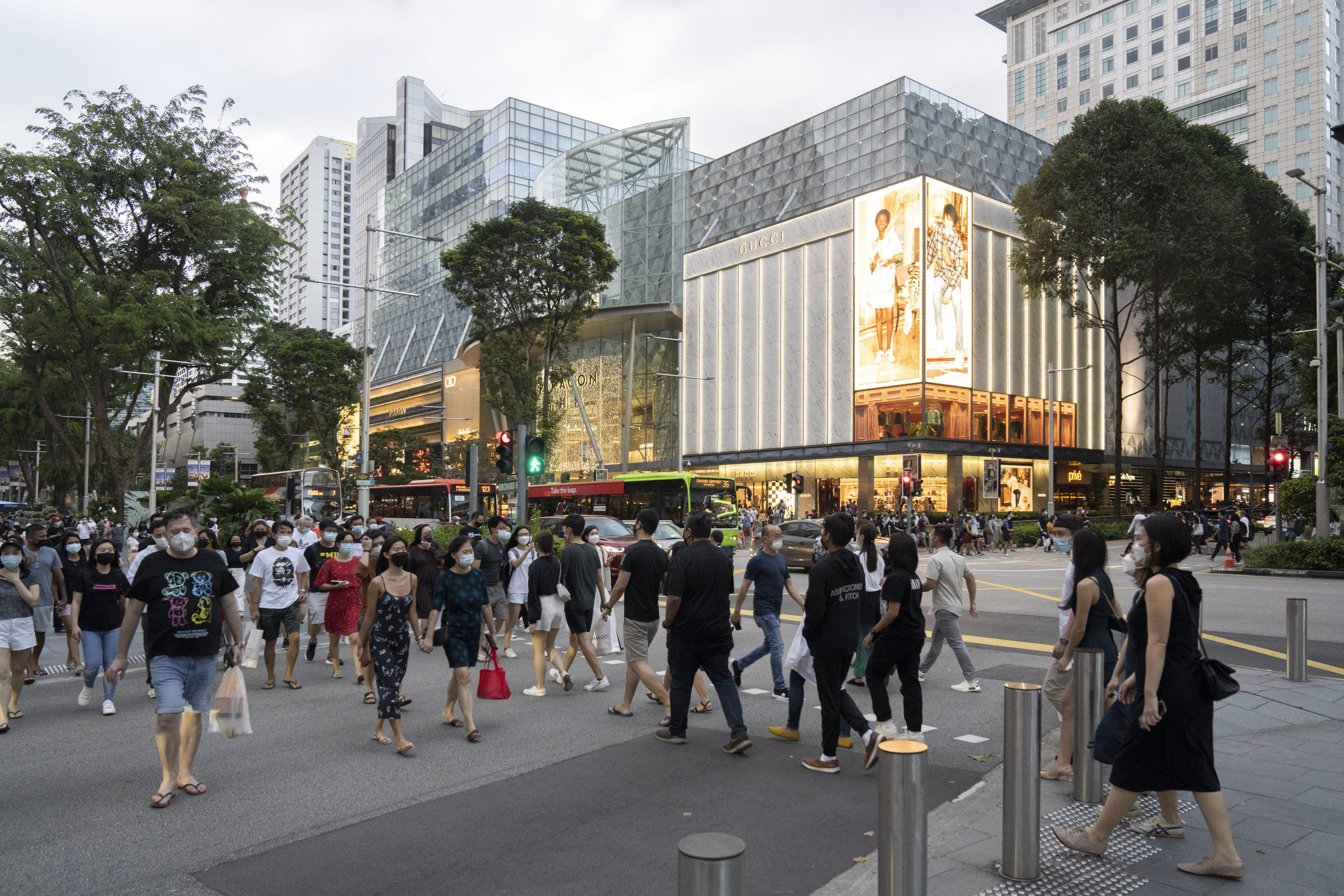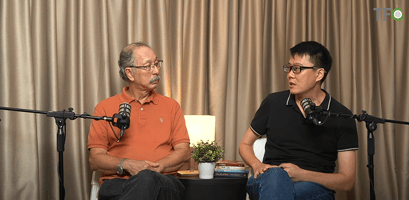Singaporeans Financial Anxiety Soars: 83% Fear Rising Costs and 45% Expect Recession
Amid growing uncertainty about the global and local economic landscape, a recent YouGov survey reveals that 83% of Singaporeans are deeply concerned about rising living costs, while 45% anticipate a recession within the next six months.
Conducted in four waves between May and June 2025, the survey of 4,040 adults aged 18+ provides critical insights into public sentiment, generational differences, and planned spending behaviours. Below, we analyse the key findings and their implications.

Economic Outlook: Global vs. Local Perspectives
Global Economy
- Recession Fears: 45% of respondents believe the global economy will fall into a recession within the next six months.
- Growth Expectations: Only 15% expect growth, while another 15% anticipate stability.
Singapore Economy
- Domestic Recession Concerns: 25% of respondents fear a recession in Singapore, reflecting moderate optimism compared to global fears.
- Growth Expectations: 18% expect growth, and 30% believe the local economy will remain stable.
Generational Differences in Economic Optimism
| Generation | Key Details | Insights |
|---|---|---|
| Gen Z and Millennials | - Optimism on Growth: 29% of Gen Z and 26% of Millennials expect economic growth in Singapore. - Key Concerns: Housing affordability is a top financial worry for both groups. |
Relatively higher optimism among younger generations, but facing long-term housing challenges. |
| Gen X | - Pessimism on Stability: 29% of Gen X respondents expect a domestic recession. | Heightened concerns about economic stability among this generation. |
| Baby Boomers | - Healthcare Prioritisation: Focus on healthcare access, affordability, and elderly care. | Emphasis on essential needs as they age, reflecting priorities in their financial outlook. |
Top Concerns for the Next Six Months
- Cost of Living: The overwhelming concern for 83% of Singaporeans is driven by expectations of rising expenses.
- Job Security: 45% are worried about maintaining stable employment amid economic uncertainty.
- Broader Economy: 41% express anxiety about the overall economic climate.
- Global Trade Tensions: 37% cite trade tensions as a significant concern.
- Geopolitical Risks: 25% are uneasy about geopolitical instability affecting the economy.
Perceptions of Cost of Living and Disposable Income
| Category | Key Details | Insights |
|---|---|---|
| Cost of Living | - Definite Increase Expected: 47% of respondents anticipate a definite rise in living costs. - Possible Increase Expected: 42% foresee a potential increase. |
A large majority expect rising living costs, with only a small minority expecting no change. |
| Disposable Income Changes | - Decrease Reported: 46% experienced a decrease in disposable income over the past six months. - Increase Reported: Just 17% saw an increase. |
Widespread financial strain is evident, with significantly more reporting a decrease than an increase. |
Planned Spending Adjustments
Cutbacks in Discretionary Spending
- Dining Out: 26% plan to reduce spending on dining out.
- Indulgent Foods and Drinks: 23% intend to cut back on luxuries like gourmet meals and specialty beverages.
- Food Delivery: 20% aim to spend less on food delivery services.
- Entertainment, Bars, Pubs, and Luxury Goods: 18–21% plan to scale back on discretionary categories such as entertainment and luxury items.

Increases in Financial Security and Essentials
- Savings: 31% plan to boost savings, with Gen Z leading at 37%.
- Investments: 20% aim to increase investments, rising to 29% among Gen Z.
- Healthcare: 19% plan to spend more on healthcare, with Baby Boomers prioritising this at 24%.
- Minimal Healthcare Cuts: Only 6% expect to reduce healthcare spending, underscoring its importance across all generations.
Travel and Generational Spending Trends
Travel (Vacations)
- Increased Spending: 21% plan to spend more on travel.
- Reduced Spending: 17% intend to cut back, reflecting mixed priorities in leisure spending.
Gen Z Spending Trends
- Entertainment: 16% plan to increase spending on entertainment.
- Beauty and Personal Care: 14% aim to invest more in grooming and personal care.
- Wellness: 13% prioritise wellness-related expenses, aligning with broader trends among younger consumers.
Non-Cutters: Who’s Not Cutting Back?
- Resilient Consumers: 23% of respondents do not plan to cut back on any spending category.
- Baby Boomers Leading: 28% of Baby Boomers fall into this group, likely due to their focus on essentials and established financial security.
Based on YouGov's survey data, here’s the full list of how Singaporeans plan to adjust their spending over the next 6 months:
| Expenditure Type | Allocate Less Money (%) | Allocate More Money (%) |
|---|---|---|
| Dining Out | 26% | 13% |
| Indulgent Food & Drinks (e.g., bubble tea) | 23% | 10% |
| Luxury Goods (e.g., watches, bags) | 21% | 4% |
| Entertainment (e.g., concerts, cinema) | 21% | 6% |
| Food Delivery & Takeaway Meals | 20% | 12% |
| Apparel (e.g., clothing, footwear) | 19% | 9% |
| Socialising (e.g., pubs, bars, nightlife) | 19% | 4% |
| Private Transport (e.g., ride-hailing, taxis) | 18% | 8% |
| Going Overseas for Vacation | 17% | 21% |
| Travel Accommodation (e.g., hotel, Airbnb) | 14% | 14% |
| Electronics/Gadgets | 13% | 7% |
| Media Streaming Subscriptions (e.g., Netflix) | 13% | 7% |
| Beauty & Personal Care (e.g., cosmetics, hair) | 13% | 9% |
| Hobbies-Related (e.g., pets, sports) | 12% | 6% |
| Wellness (e.g., gym memberships) | 11% | 8% |
| Home Improvement (e.g., renovation) | 11% | 13% |
| Purchasing a Car | 10% | 4% |
| Purchasing a House | 9% | 4% |
| Investment (e.g., stocks, gold, crypto) | 8% | 20% |
| Household Support (e.g., domestic helpers) | 7% | 8% |
| Insurance Policies/Premiums | 7% | 11% |
| Healthcare (e.g., vitamins, supplements) | 6% | 19% |
| Education/Training (e.g., enrichment classes) | 6% | 10% |
| Deposit into Savings Account | 6% | 31% |
| Others | 1% | 1% |
In a Nutshell
The survey paints a clear picture of widespread concern about rising costs and economic instability, with generational differences shaping financial priorities and spending behaviors.
While younger generations, such as Gen Z and Millennials, focus on housing affordability and future investments, older generations like Baby Boomers prioritise healthcare and stability.
Key Takeaways:
- Rising living costs dominate concerns, with 83% fearing financial strain.
- Generational perspectives highlight varying priorities, from housing to healthcare.
- Planned spending adjustments reflect a shift toward financial security and essentials, with discretionary spending taking a hit.
- Despite widespread cutbacks, 23% of respondents remain resilient, particularly Baby Boomers.
As Singaporeans brace for potential economic challenges, strategic planning and adaptability will be crucial for navigating the uncertain months ahead.
Let us know what you think about this topic, and what do you want to hear next.
Reference:
- YouGov Surveys: Serviced (May–June 2025). Sample size: 4,040 adults aged 18+ in Singapore.
You can now be our community contributor and make a pitch to have your favourite personality be on our show.
Join our community group and drop us your insights on this topic.

-Jun-01-2025-06-24-42-9139-PM.png?width=50&name=Square%20(2)-Jun-01-2025-06-24-42-9139-PM.png)








Let us know what you think of this post